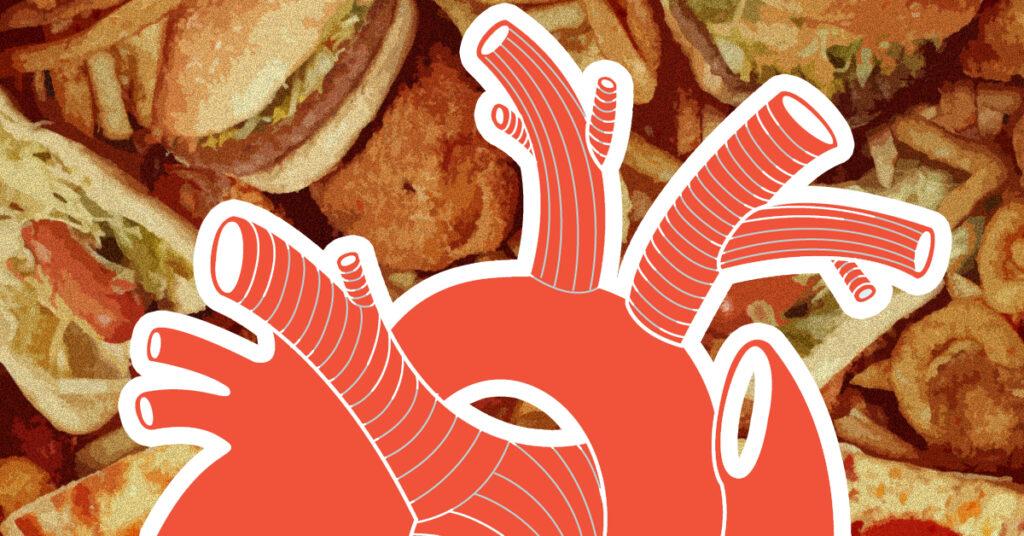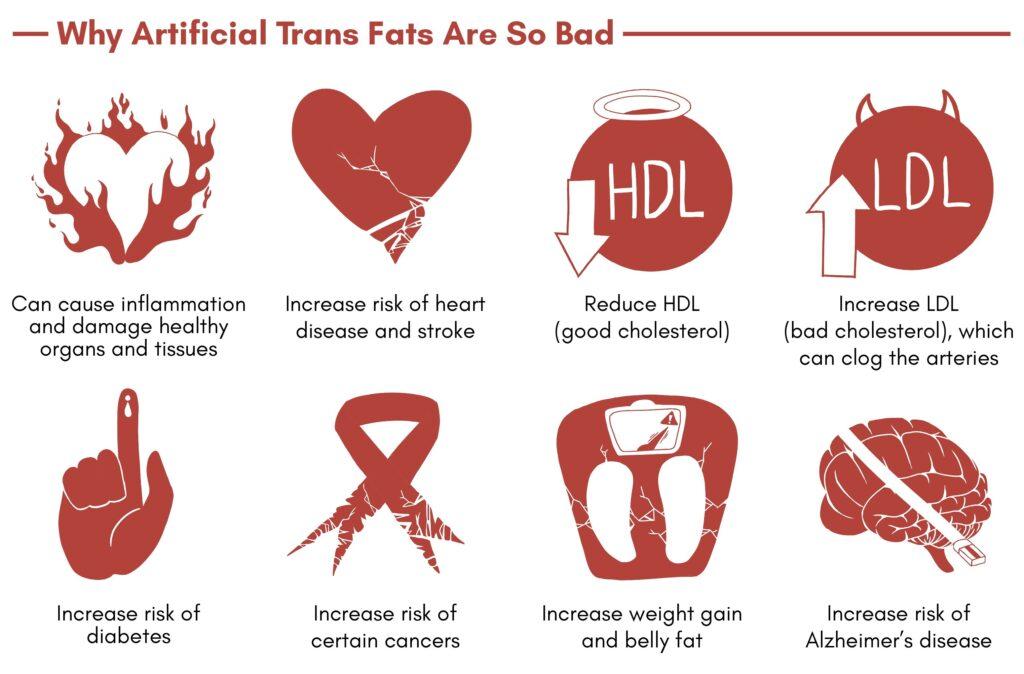
This article is the second in a three-part series on trans fats. Read part 1 here.
“Trans fats are what I would like to call ‘hidden problems’, because Filipinos are not well aware of the problem that comes with eating lots of them,” shared Dr. Dex Macalintal, a registered nutritionist-dietician.
Macalintal explained that trans fats promote the gradual blockage of our blood vessels. This increases the risk of cardiovascular diseases and many other serious and lethal illnesses. In other words, it’s a slow but steady killer.

“If Filipinos aren’t careful, high consumption of food containing trans fatty acids will increase the risk of mortality and morbidity of coronary heart disease,” explained Atty. Mikhail Laurence Millan and Trisha Descallar of non-stock, non-profit public interest law organization ImagineLaw.
Matters of the heart
Based on data published by Statista last June, ischemic heart disease remains the number 1 cause of death in the Philippines, claiming the lives of over 50,000 Filipinos in 2017. According to the Philippine Statistics Authority (PSA), the 2017 death rate resulting from coronary/ischaemic heart diseases was much higher, at about 80,000.
When we hear about heart disease, we often associate it with old age. However, that’s not necessarily accurate. In reality, cardiovascular diseases are linked to high trans fat consumption; younger people can and do develop such illnesses as well. This is especially true when paired with high consumption of salt and/or sugar, minimal to no physical activity, and other unhealthy lifestyle risk factors.
“Generally, the working population does not set aside time for physical activity,” explained public health specialist Dr. Edrie T. Alcanzare. “Diet also plays a big role in the consumption of simple carbohydrates and trans fatty acids.” Alcanzare also mentioned other factors, such as genetics, which influences dyslipidemia (or high levels of low-density lipoprotein or LDL, often called “bad” cholesterol) and Type 2 diabetes mellitus.
Trans fats and cholesterol
Trans fats also interact with cholesterol in the worst ways possible. The two types of cholesterol-carrying proteins are the aforementioned LDL and high-density lipoprotein (HDL or “good” cholesterol). Too much LDL can cause cholesterol buildup and subsequently clog your arteries. In contrast, HDL carries excess cholesterol from other parts of your body all the way to your liver for disposal.
As it turns out, trans fats reduce your HDL levels and increase your LDL levels, simultaneously affecting your ability to rid your body of cholesterol and increasing your risk of heart attack and stroke.
It’s important to emphasize that LDL itself isn’t bad, but too much of it—specifically, above 130 milligrams per deciliter of blood (mg/dL) for people who don’t have heart disease, blood vessel disease, or diabetes, or above 100 mg/dL for people who do—will put your health at risk.
Take all of the other health risks of trans fats into consideration—increased risk of diabetes, Alzheimer’s disease, and certain types of cancer, organ-damaging inflammation, weight gain, and belly fat retention—and it becomes abundantly clear that trans fats are absolutely nasty.
“Cardiovascular and cerebrovascular diseases do not exist in a vacuum,” said Alcanzare. “There are other lifestyle diseases that can happen.”
With the current community quarantine guidelines in place due to the COVID-19 pandemic, an increase in cardiovascular disease cases and deaths, as well as related disorders, is very much possible (and quite frightening). After all, we’re not just limited in terms of mobility and physical exercise; we’re also ordering more potentially trans fatty foods, likely without us realizing it.
Trans fats in online food production and selling
The pandemic has encouraged Filipinos to find new ways to earn while flexing their creative muscles. Many have turned to cooking and baking, and almost every day, new independent businesses pop up, offering all sorts of yummy products from salty Pinoy favorites to sweet and creamy pastries.
“I started selling my baked goods (baked sushi, baked macaroni, banana bread, cookies, and cheesecakes) last July 2020,” shared Ziella Barreno, the one-person team behind Ziella Bakes. According to Ziella, selling her baked goods was never part of the plan; what started out as a hobby became a full-fledged online business when her dentist and a college professor started ordering (and paying for) food from her.
Another online baker/seller, M*, turned her hobby of three years into a cookie-and-cupcake business after receiving constant positive feedback from family and friends. “Earning extra money from something you enjoy doing is always a good thing,” said M.
Both Ziella and M acknowledged the importance of nutrition in their baked goods, but admitted that it’s not exactly at the top of their priority lists. For her part, Ziella does make an effort to reduce the sugar content of her products, using raw sugar or coco sugar as “healthier” alternatives. “My burnt cheesecakes are gluten-free, too!”
Why it’s hard to eliminate trans fats
M, on the other hand, had a different take. “My main concern [is to offer] good taste at an affordable price. Focusing on nutritional value in baking would lead me to a different target market.”
M elaborated by saying that her current market isn’t exactly health-conscious; most of them are just looking for sweet, inexpensive snacks. She added that putting nutritional value and health at the forefront would likely increase the cost of production (and thus the price).
Like many Filipinos, Ziella and M professed that their knowledge of trans fats is limited. M, in particular, said that she does not necessarily avoid using ingredients with trans fats, such as margarine, vegetable oil, and vegetable shortening. This is due to their general accessibility, as well as the fact that they’re crucial ingredients in many baked goods.
That’s what makes trans fats so challenging to eliminate from our diets: They’re in many of our favorite foods—and sometimes, we aren’t even aware that they’re there. (continued)
*Not her real name.
Note: This story was produced under the “(Un)Covering Trans Fats Media Training and Fellowship Program” by Probe Media Foundation Inc. (PMFI) and ImagineLaw (IL). The views and opinions expressed in this piece are not necessarily those of PMFI and IL.
References
- https://www.bworldonline.com/these-fats-keep-processed-foods-fresh-longer-but-they-shorten-peoples-lives/
- https://www.ewg.org/research/hidden-plain-sight
- https://www.flipscience.ph/health/life-cycle-donut/
- https://www.flipscience.ph/health/stay-healthy-how-to-keep-trans-fats-out-of-your-diet/
- https://www.health.harvard.edu/family-health-guide/trans-fat-labeling
- https://www.healthline.com/health/hdl-vs-ldl-cholesterol
- https://www.manilatimes.net/2014/07/20/health-news/the-ugly-truth-about-trans-fatty-acids/112833/
- https://www.statista.com/statistics/1120528/philippines-leading-causes-mortality-by-disease/
Author: Mikael Angelo Francisco
Bitten by the science writing bug, Mikael has years of writing and editorial experience under his belt. As the editor-in-chief of FlipScience, Mikael has sworn to help make science more fun and interesting for geeky readers and casual audiences alike.









